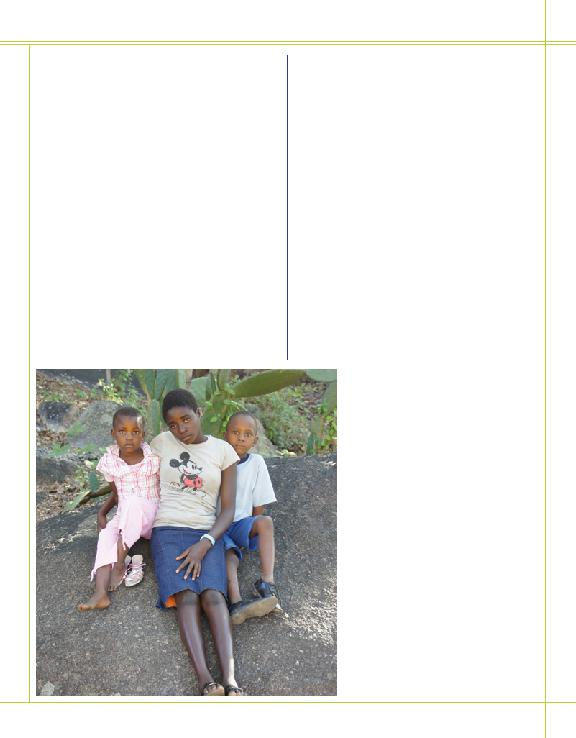
welfare of children around the world, you become
curious. You are smitten by the tropical sounding name
of the organization. You want to learn more.
political science and women's studies from Loyola
University in Chicago, is also pursuing a Master's Degree
in women and gender studies from De Paul University.
She is the founder of Vanavevhu. The US-based nonprofit
organization is also registered in Zimbabwe as a
charitable institution.
young people in Bulawayo who are managing households
without parents. The organization teaches them a variety
of life-saving skills, provides them with food, health
services, education, and shelter. The youth, or cohorts,
as they are referred to in the training program, have been
orphaned and robbed of a normal childhood by the AIDS
pandemic and other illnesses. At the tender ages of 10, 14,
or 15, they have become mothers and fathers to younger
siblings, taking care of them in ways never anticipated
at such a young age. Child-headed households are a
challenge, both for the orphans and for society.
program which runs for a period of five years. The
age range for admission into the program is 14 to 22
years, and the young recruits must have immersed
themselves in some type of entrepreneurial activity. The
training program arms the youth with the knowledge
and expertise to start their own businesses and to act as
mentors for other young people.
is special and talented, given the right opportunity. When
Ms. Mhangami founded Vanavevhu, her initial focus was
on collecting and shipping women's personal hygiene
products and clothes. These items were welcome gifts to
the women in Bulawayo, since the economic situation in
Zimbabwe had deteriorated to a large extent. After some
soul searching during one of her visits to Bulawayo, and
a feasibility study as a guide, she determined a different
course of action. She recognized the need to transform
the young orphans' lives in order to make them self-
sufficient. And thus began the journey to recruit the
young men and women from child-headed homes to
undergo the five-year training program which includes
agriculture (with some help from volunteer agronomists
from as far away as the United States), beekeeping, and
assistance from local beekeepers). The goal
is to eventually enable these young people to
develop strong and sustainable markets, so
that their products can be sold to high-end
hotels and restaurants, and local markets.
To date, the young entrepreneurs have a
sizable garden where they are learning about
modern farming methods and they will soon
be harvesting honey from their first colony.
Vanavevhu's mission, and general overview
of the program.
we got our tax exemption in August or September of
the same year.
out to do is to provide child-headed households with
the support that a parent would otherwise provide.
So we focus that on food, health care, and education.
har family